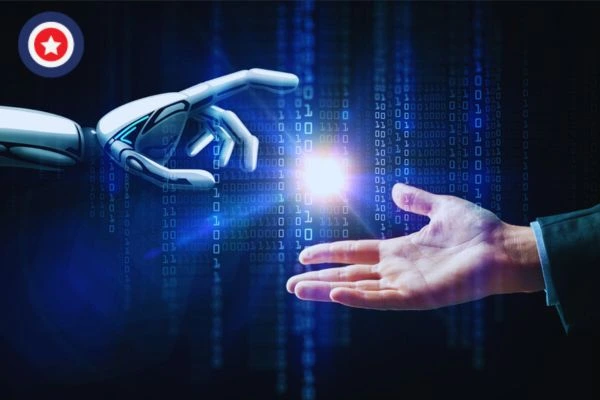
How Nordic Prime Delivers Affordable Global Streaming
January 15, 2025
What is Sage Accounting Software?
January 17, 2025Artificial intelligence (AI) is turning into one of the most interesting fields in a generation, sparking a hobby amongst beginners, pro developers, and curious tech fanatics alike. If you’re keen to find out AI, the first query in your mind might be, “Does Artificial intelligence require coding?” This is a valid query, particularly if you’re uncertain whether technical capabilities like programming are important to jump into the charming global of AI.
Spoiler alert—whilst coding may be helpful (and often important in advanced AI tasks), you don’t continually want to understand a way to code to start your AI adventure. This blog will smash down the basics and introduce you to special paths towards gaining knowledge of AI, whether you’re a seasoned coder or someone with 0 programming experience.
What is Artificial Intelligence (AI)?
Before we deal with the coding thing, let’s define AI. AI refers to machines or systems that simulate human intelligence to carry out duties like problem-solving, studying, or knowledge of herbal language. From virtual assistants like Siri to advice algorithms on Netflix, AI systems are revolutionizing industries globally.
AI works through practices like device learning, computer vision, and herbal language processing (NLP). Many AI systems rely on widespread datasets and algorithms to examine and make selections. Understanding these components is useful whether or no longer you understand the way to code.
Is Coding Necessary to Learn and Work With AI?
The short answer is it depends. AI development can be split into two major roles:
- AI Developers – These professionals create and program AI systems from scratch. Coding is essential in this role.
- AI Users – These individuals use pre-built tools, platforms, and AI services to integrate AI functionality into their workflows. Minimal or no coding is often required for these tasks.
When Coding for AI is Essential
If you’re planning to work in a highly technical role—like building custom AI algorithms or developing deep learning models—coding is a must. Advanced projects typically involve programming languages like Python, R, or JavaScript for tasks like:
- Training Machine Learning Models – Algorithms must be trained using code before AI can learn and make predictions.
- Data Processing – For AI to deliver results, you might need programming skills to clean and process datasets.
- Custom Model Development – Writing algorithms or opening AI frameworks may require coding expertise.
When AI Can Be Used Without Coding
Not ready to learn coding yet? No problem. Many accessible AI tools cater to non-programmers. Several platforms and software solutions provide drag-and-drop interfaces for creating AI-based applications. These tools are great for testing AI concepts or incorporating AI into existing workflows without having to write code.
Popular platforms like Google AutoML, Microsoft Power Platform, and Teachable Machine allow users to build AI models or streamline processes without a coding background.
Exploring AI Without Coding
If you’re a beginner intimidated by the coding skills often associated with AI, start with the basics. Here’s how to dip your toes into AI without learning to code immediately:
- Learn AI Basics
Start by means of understanding the foundational standards of AI, together with gadget getting to know, deep gaining knowledge of, and statistics technological know-how. Free structures like Coursera or edX provide beginner-pleasant AI publications.
- Experiment With No-Code AI Tools
Leverage user-friendly AI services like:
- Teachable Machine by Google to create machine learning models with no programming. You can teach the machine to recognize images, sounds, or poses.
- IBM Watson Studio provides pre-built AI models and services.
- Runway ML offers a simplified platform for artists or creators who want to explore AI without technical complexity.
- Play With Pre-Trained AI Systems
Use services like Google Translate, ChatGPT, or Canva’s AI tools, which can help you enjoy AI abilities consisting of text generation, image enhancing, or language translation without coding.
- Get Familiar With Data
AI closely relies on facts. Learn the way to work with established statistics by exploring tools like Microsoft Excel or Google Sheets. This will assist you apprehend how datasets have an impact on AI behavior.
Coding For AI Made Accessible
If you plan to transport advanced AI tasks through the years, you’ll eventually need to begin coding. Thankfully, gaining knowledge of applications isn’t as daunting because it seems. Here are some newbie-friendly approaches to get began with coding for AI:
Programming Languages for AI
- Python: Widely seen as the best language for AI due to its simplicity and abundance of libraries (like TensorFlow, Scikit-research, and PyTorch).
- R: Excellent for records analysis and machine mastering duties.
- Julia: A newer programming language designed for numerical computation and AI experimentation.
How to Learn AI Coding
If learning to code feels overwhelming, modern platforms make it a bit easier. Try these strategies:
- Take Coding Courses: Enroll in online courses like Codecademy’s Python Path or Harvard’s CS50 Introduction to Computer Science.
- Work With AI Libraries: Once familiar with programming, start experimenting with famous AI frameworks, together with TensorFlow, PyTorch, and Keras.
- Participate in AI Communities: Join on-line coding forums or groups like Kaggle, where you may take part in coding challenges and learn collaboratively.
Combine Tools With Code
Even for those open to learning coding, remember the ecosystem is wide. Combine pre-built AI platforms with code when necessary to maximize efficiency.
Why It’s Worth Exploring AI—With or Without Coding
No matter the path you take, learning about AI can be incredibly rewarding. Whether you start with coding or explore no-code solutions first, AI knowledge has professional, creative, and personal benefits. These include:
- Boosting productivity through automation tools.
- Gaining competitive skills valuable in the job market.
- Tackling real-world problems with innovative solutions.
Final Thoughts
Artificial Intelligence is adaptable, promising, and accessible for everyone. While coding may be essential for advanced roles in AI development, beginners or business professionals can start exploring AI with minimal technical expertise. Platforms like Runway ML or Google AutoML present accessible entry points for beginners.
For those aiming for deeper understanding, learning to code is a critical next step. Languages like Python and user-friendly frameworks can help you unlock the full potential of AI tools.
Start small by experimenting with no-code AI solutions or taking a beginner coding course. Lucrative opportunities await in this rapidly expanding field, whether you’re a developer or enthusiast curious to see what AI can do.




